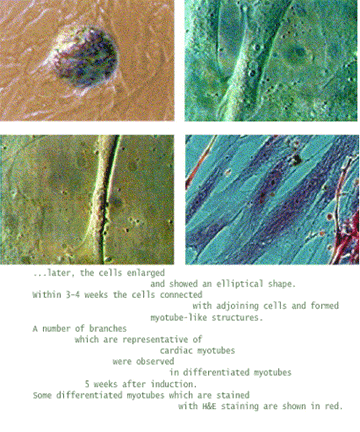
If it’s not new, you can’t publish it; it is an axiom that illustrates a sickness in science. Doing biological research is not cheap, it takes time and money, and there is not enough of either to go around for everyone to fulfil their Nobel Prize dreams. If a scientist wants stability and adequate funding, i.e. a career, they have to produce. But these days knowledge is not enough; it has to be something that can turn into a “breakthrough”, a patent, or a pill. The pressure to produce, and for experiments to “work” can be enormous. Scientists can break under that pressure, having worked in many different research labs I have seen it happen. Although it may come as a surprise to some, scientists are only human.
Obviously Dr. Hwang Woo-Suk is only human as well, despite the initial fervent belief of his entire country that he was something more. Dr. Hwang Woo-Suk was made a molecular biology superstar when he published a paper in Science back in 2004 that described the first successful cloning of embryonic stem cells. The discovery, if true, would have given medicine a powerful new tool to treat spinal injury, neurological disease, and even cancer. But he faked all the results. Consequently the once drab orderly world of science got some drama and the papers have delighted in portraying a science community shocked by Hwang’s betrayal.
I have seen scientific ideals get quashed for the sake of a “positive result”. A whole career can be dependant on whether a drug makes a line on a computer screen go down. In that situation, when the line started edging down on its own, I heard a senior scientist say “quick, put on the drug now before it goes down more”. This is the true scandal that the Hwang fraud has uncovered, a cut-throat competitive climate where fundamental principles of science are disregarded in favour of getting a breakthrough.
A New York Times article quoted a researcher from Stanford that went off the same research track because it looked like Dr. Hwang had “made the process so efficient.” In the same article, a biotechnology company that was also doing similar research shut down when “the company’s financing dried up after Dr. Hwang claimed success.”
When a competing scientist has got everything apparently figured out and presented in a nice little package as Hwang did, other scientists get off the same research. This is often because they can’t get any funding for the project since the companies and agencies that hold the money bags tend to have a narrow view that one publication is enough “proof”. Even though scientific reasoning would say that once is never enough to prove anything.
A publication can provide a compelling argument for a theory but it doesn’t hold water until other scientists replicate the results. Any scientist worth their salt is a sceptic; there is no truth, only theory. If no one is able to replicate a scientist’s data the death of their career is just as certain, if not as dramatic, as Hwang’s. Hwang broke under pressure, he couldn’t have been thinking straight because every scientist knows that fraud will be found…eventually. You might be able to fool funding agencies, but you cannot fool the scientific community for long. Any well grounded scientist understands this fundamental concept that keeps science honest. So how did Dr. Hwang loose sight of this and commit fraud when he should have known that he would be found out eventually?
The larger issue at the core of this scandal has to do with what academic scientific research has become, a business in search of the positive result, the patent, and the pill that will secure a scientist’s future. Should we all be surprised that Hwang succumbed to dreams of fame and fortune? Or should we be more surprised that there are not more cases of fraud in science?
One publication puts out a model for scientists to test, but these days no one is getting any money to test anything. If a lab does get the luxury to investigate another scientist’s work it has to couch it with a new twist before it can publish and get the information out. The current economics of science is the true scandal in the Hwang fraud. Labs only get money for the breakthrough and science journals only want to print the breakthrough. So what or who is going to make sure the breakthrough is real?
